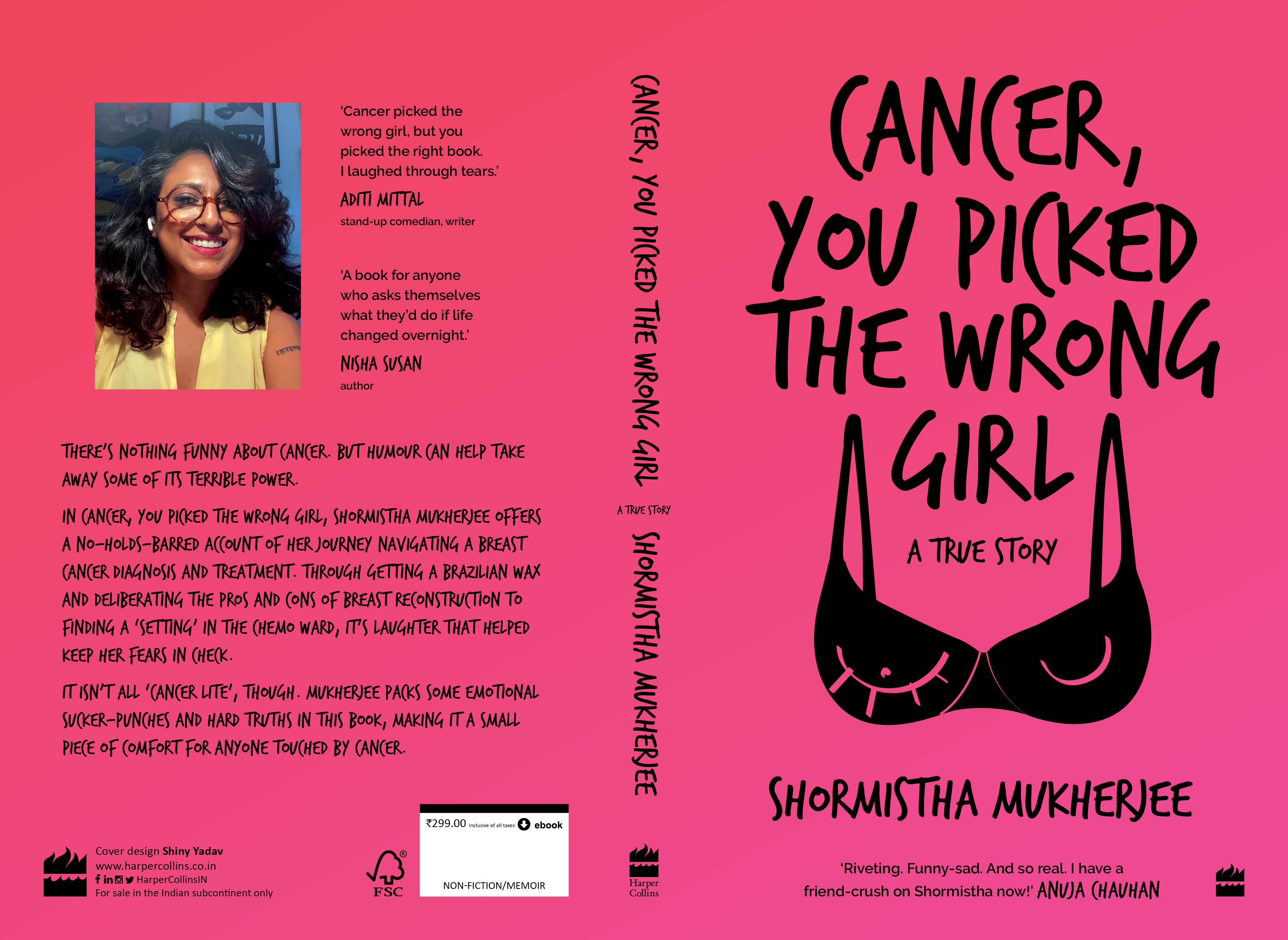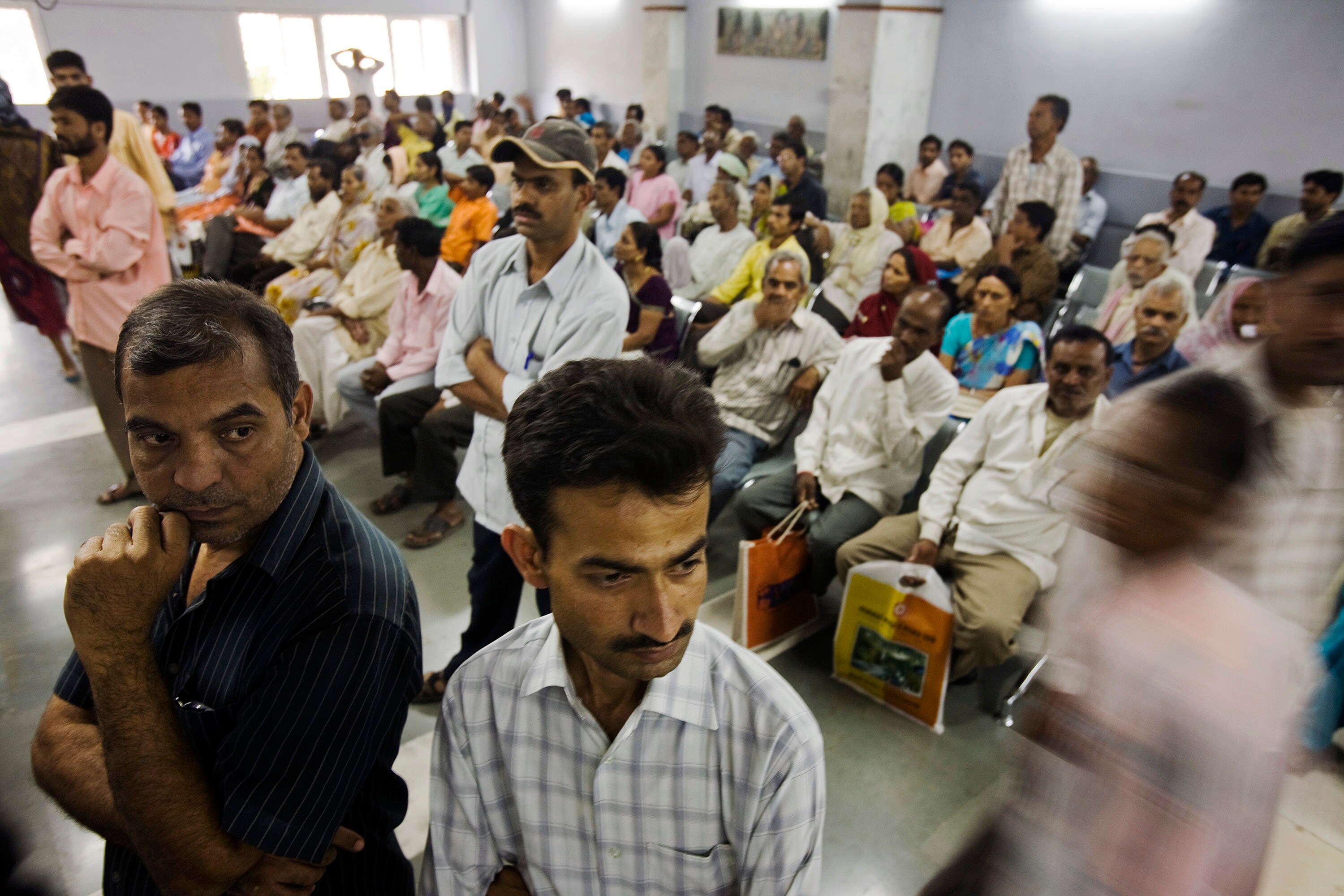
When a friend posted on Facebook that he had read this “truly inspiring” cancer memoir that “leaves out nothing”, someone was quick to comment that she was put off by the title, Cancer, You Picked The Wrong Girl. “It suggests that whether cancer prevails or not depends upon the attitude/toughness of the patient,” she wrote, adding that she wouldn't be reading the book because she was unable to go beyond the title. I guess it didn't help that the title was illustrated by an image that could easily be interpreted as a winking bra.
I ordered it immediately and idly wondered what the person who had been offended by the title would say to author Shormistha Mukherjee calmly awaiting her first oncologist appointment, not knowing she had, in her words, “popped her cancer cherry”.

I've only ever read cancer memoirs where the author or someone close to the author dies. Like many of you, I sobbed my way through Paul Kalanithi's philosophical musings on life and death in When Breath Becomes Air. Grief and loss weigh heavy over every cancer book I've read.
Kalanithi's book records his death and it ends with a message for his eight-month-old daughter whom he will never see growing up. “When you come to one of the many moments in life where you must give an account of yourself, provide a ledger of what you have been, and done, and meant to the world, do not, I pray, discount that you filled a dying man's days with a sated joy, a joy unknown to me in all my prior years, a joy that does not hunger for more and more but rests, satisfied,” he says. “In this time, right now, that is an enormous thing.”
But there is another, ‘funny cancer memoir' genre, and women survivors have written books with titles such as Cancer Schmancer, Cancer Vixen, and Getting Things Off My Chest. And now, here is one written by breast cancer survivor Mukherjee, a 44-year-old pedicure-obsessed, workaholic entrepreneur who describes herself as “not just glass-half-full person” but also a, “seize the chance to add some Old Monk into it” kind of person. In a blurb, author Anuja Chauhan, accurately describes the book as “funny-sad”. I was sold before I even started reading it.

(Image Courtesy: Harper Collins)
The Indian Council of Medical Research estimated that in 2020, 13.9 lakh Indians would have cancer. Breast cancer is the most common cancer among women. But even as the incidence of cancer increases alarmingly, Indians continue to wrap this disease in a firm shroud of secrecy. It reminds me of our reluctance, until recently, to publicly discuss issues such as divorce and suicide.
I've been at the receiving end of cancer secrecy. When a loved one got cancer a few years ago, she held on to the knowledge for dear life, refusing even to share it with her closest friends and family. Information was released strictly on a need-to-know basis, and when I finally found out, she warned me not to tell anyone. Talking to her about cancer, even after it was in remission, was impossible.
Mukherjee's decision to write a tell-all cancer book is her biggest service to a country that only articulates the C-word in a hushed whisper.
After a doctor confirms that she has breast cancer, a friend asks if she can share the news. That's when Mukherjee makes an important call. “In that instant, I decided none of this was my fault. I had nothing to hide. I was not going to blame myself or keep it a secret. It was cancer.”
She describes everything about the two big Cs—cancer and chemotherapy—in graphic detail. Her narrative is confident, fearless and shreds the silence around cancer.
She's even more convinced she needs to talk about it when, the day after her surgery, she realises that the family cancer history she has given her doctors is inaccurate. Her mother reveals that her grandma died of ovarian cancer. “It only strengthens my resolve to talk about it, on my social feed, to friends, strangers, anyone.”
(Image Courtesy: Harper Collins)
Why not normalise cancer and remove the fear of chemo from people's minds by “starting chemo day-care visits for the aam janata?”, she wonders only half-jokingly. She wants to smash the taboos around chemotherapy too. “Chemo has so many side-effects. But the ones people don't talk about are these ones. Like superstition. Like losing your dignity and your independence. And feeling jealous of your friends.”
She talks about everything from her “chemo friends” and the sudden onset of menopause (I think she should write her second book on this equally secretive topic) to her reconstructed breast that has no feeling, “scraped so fine from inside that in places the skin was barely there” and the nipple area where “all that remained there was a patch of skin, stitched in a circle.”
When a woman diagnosed with the same disease reaches out to her on Instagram to ask what her breast reconstruction will look like, Mukherjee sends her new friend a picture of her reconstructed breast.
Mukherjee documents her changing body and mental state at every step of this devastating journey. She acknowledges her privilege repeatedly as she sees the lined pavements outside Mumbai's premier Tata Memorial Hospital for cancer and her ability to easily access good medical care.

File photo of patients waiting at the Head and Neck Cancer Out-Patient department of Tata Memorial Hospital in Mumbai, India. (Photographer: Prashanth Vishwanathan/Bloomberg News)
Her doctors happily gave her permission to use their real names in the book because, like the author, they want to break the silence around cancer too. No reader of Mukherjee's book will ever ask a cancer patient the banal question she dreaded answering: “So how are you feeling?”
Priya Ramani is a Bengaluru-based journalist and is on the editorial board of Article-14.com.
The views expressed here are those of the author, and do not necessarily represent the views of BloombergQuint or its editorial team.
Essential Business Intelligence, Continuous LIVE TV, Sharp Market Insights, Practical Personal Finance Advice and Latest Stories — On NDTV Profit.























